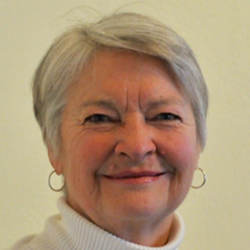
A prominent player in the philosophy of computer science is that international organization that includes the two disciplines in its title. A history on the website of the organization (IACAP), traces its development. Past conference programs, held by organizations later merged into IACAP, exhibit leadership in the nascent philosophical computing topics of the First Millenium– logic, software principles, the computational model, and knowledge representation. Later talks deal with methods such as connectionism, neural networks, and natural language processing, reflecting the history of artificial intelligence and philosophy of mind. Social and ethical considerations appear as well, in discussions of norms of communication and agency, open source, and open access.
The regional conferences were merged into single annual event that alternates between North America and Europe. Recent papers show a broader scope of inquiry, into the nature of information, digital media and teaching methods, business processes, network structures and behavior, issues of autonomy and control in hardware and software, and the obligations imposed by society’s expectations of digital services.
What drew current philosophers of computer science into these subjects, and what do they think that the study can offer to computer science itself? Let’s hear from a leader in the field. Don Berkich, an associate professor of Philosophy at Texas A&M Corpus Christi, is the Executive Director of the International Association for Computing and Philosophy.
A View from Don Berkich
Should computer scientists and philosophers bother with one another?
After all, philosophers are frequently dismissed outside the discipline in the States as meddlesome, ill-informed, and technically unsophisticated dilettantes whose harping on about this or that arcane, readily-resolvable issue is safely ignored. Recall in this light Feynman’s famous injunction, "Philosophy of science is about as useful to scientists as ornithology is to birds."
Conversely, computer scientists are viewed askance outside their own narrow discipline as puffed-up, obsessive technicians whose work may be useful (or dangerous) in the way most of merely applied mathematics can be useful (or dangerous), but it is hardly of any fundamental interest. Indeed, the few debates that do filter out are amusingly trivial: Indent style? Emacs vs. vi?
To be sure, these are caricatures. Though, are they altogether unfair?
I don’t think so–yet all the more reason for conversation between the philosophers and computer scientists, or so my experience suggests. Let me explain.
- As an avid open-source advocate, amateur coder, CLI fan, and ‘that weird guy in the department who uses something other than Windows or Mac’ (Debian, since Bo–version 1.3–was released in ’97), I’ve learned firsthand that philosophical speculation absent the hard work of developing computational models lacks credence. Thus, I argue, computational plausibility is an important test for philosophical speculation (in the philosophy of mind, in particular); many philosophers are likewise sympathetic to this kind of computational, as opposed to logical or empirical, positivism.
- As a philosopher, I’ve long been interested in computational models of agency. I’m grateful to Rod Grupen’s willingness to welcome me to meetings of the Laboratory of Perceptual Robotics at UMass-Amherst and to sit as an outside member on my dissertation committee. What I discovered then has never since been gainsaid: investigations in computer science into perception, say, or agency, are no less philosophical for being grounded in the demands of implementation–and all the more rigorous and fascinating for being thus grounded.
- As Executive Director of the International Association for Computing and Philosophy, I’ve seen firsthand over the years how discussions between philosophers, computer scientists, and cognitive scientists challenge, fascinate, and illuminate in ways richly edifying to all involved, discussions which have given rise to such interdisciplinary journals as Minds and Machines and Philosophy and Technology.
- As a member of the philosophy faculty at Texas A&M University-Corpus Christi, I’ve had the opportunity to develop a signature senior-level course on the foundations of artificial intelligence and cognitive science, Minds and Machines, which explores a semester-long dialogue between AI-optimists, backed by their impressive accomplishments, and AI-pessimists, backed by their daunting skeptical challenges.
- Finally, I am currently and for the first time offering a new course, ‘Introduction to Philosophy for Computer Science Majors.’ In light of my computer science colleagues’ complaints that their students struggle with logic and problem-solving, the course will emphasize puzzles, paradoxes, and formal logic to help the students develop while perhaps interesting the students in a side of philosophy they likely don’t know.
For my part, in future posts I plan to present philosophical challenges and pose foundational questions to the computer science community in hopes of promoting fruitful conversation.
Those Philosophical Challenges and Foundational Questions, and More
Certainly, as Berkich says, considerations of implementation strengthen rather than weaken philosophical work in artificial intelligence and other research based on human cognition. In my own case, the intriguing question was not exactly "How can philosophy use the computer?" but rather "What can philosophy tell us about what goes on in computer science?" (Hill 2016). Of the new products of the digital age, we can ask, if they are objects, what is their ontology; we can ask, if they invoke creative processes, what are their aesthetics; we can ask, if they yield knowledge, what is their epistemological status? Selected issues from that realm will be covered in future postings in this space. Firm grounding in real computer science, as Berkich states, can only enhance the integrity of such inquiries.
References
Hill, Robin K., 2016, A Call for More Philosophy in the Philosophy of Computer Science, APA Newsletter on Philosophy and Computers, Spring 2016 (15:2)
International Association for Computing and Philosophy, http://iacap.org
Robin K. Hill is adjunct professor in the Department of Philosophy, and in the Wyoming Institute for Humanities Research, of the University of Wyoming. She has been a member of ACM since 1978.



Join the Discussion (0)
Become a Member or Sign In to Post a Comment